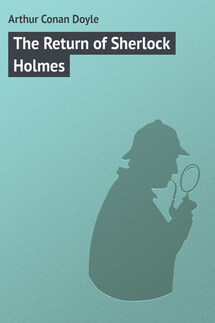Captain of the Polestar - страница 14
I shall supplement this extract from the Gibraltar Gazette by quoting a telegram from Boston, which went the round of the English papers, and represented the total amount of information which had been collected about the Marie Celeste. "She was," it said, "a brigantine of 170 tons burden, and belonged to White, Russell & White, wine importers, of this city. Captain J. W. Tibbs was an old servant of the firm, and was a man of known ability and tried probity. He was accompanied by his wife, aged thirty-one, and their youngest child, five years old. The crew consisted of seven hands, including two coloured seamen, and a boy. There were three passengers, one of whom was the well-known Brooklyn specialist on consumption, Dr. Habakuk Jephson, who was a distinguished advocate for Abolition in the early days of the movement, and whose pamphlet, entitled "Where is thy Brother?" exercised a strong influence on public opinion before the war. The other passengers were Mr. J. Harton, a writer in the employ of the firm, and Mr. Septimius Goring, a half-caste gentleman, from New Orleans. All investigations have failed to throw any light upon the fate of these fourteen human beings. The loss of Dr. Jephson will be felt both in political and scientific circles."
I have here epitomised, for the benefit of the public, all that has been hitherto known concerning the Marie Celeste and her crew, for the past ten years have not in any way helped to elucidate the mystery. I have now taken up my pen with the intention of telling all that I know of the ill-fated voyage. I consider that it is a duty which I owe to society, for symptoms which I am familiar with in others lead me to believe that before many months my tongue and hand may be alike incapable of conveying information. Let me remark, as a preface to my narrative, that I am Joseph Habakuk Jephson, Doctor of Medicine of the University of Harvard, and ex– Consulting Physician of the Samaritan Hospital of Brooklyn.
Many will doubtless wonder why I have not proclaimed myself before, and why I have suffered so many conjectures and surmises to pass unchallenged. Could the ends of justice have been served in any way by my revealing the facts in my possession I should unhesitatingly have done so. It seemed to me, however, that there was no possibility of such a result; and when I attempted, after the occurrence, to state my case to an English official, I was met with such offensive incredulity that I determined never again to expose myself to the chance of such an indignity. I can excuse the discourtesy of the Liverpool magistrate, however, when I reflect upon the treatment which I received at the hands of my own relatives, who, though they knew my unimpeachable character, listened to my statement with an indulgent smile as if humouring the delusion of a monomaniac. This slur upon my veracity led to a quarrel between myself and John Vanburger, the brother of my wife, and confirmed me in my resolution to let the matter sink into oblivion – a determination which I have only altered through my son's solicitations. In order to make my narrative intelligible, I must run lightly over one or two incidents in my former life which throw light upon subsequent events.
My father, William K. Jephson, was a preacher of the sect called Plymouth Brethren, and was one of the most respected citizens of Lowell. Like most of the other Puritans of New England, he was a determined opponent to slavery, and it was from his lips that I received those lessons which tinged every action of my life. While I was studying medicine at Harvard University, I had already made a mark as an advanced Abolitionist; and when, after taking my degree, I bought a third share of the practice of Dr. Willis, of Brooklyn, I managed, in spite of my professional duties, to devote a considerable time to the cause which I had at heart, my pamphlet, "Where is thy Brother?" (Swarburgh, Lister & Co., 1859) attracting considerable attention.









